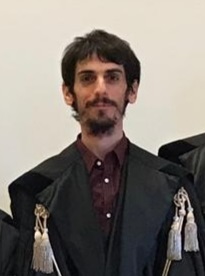August 25, 14:00-14:50 CEST
August 25, 14:00-14:50 CEST
Deception in investigative interviewing in forensic examinations
In this symposium we examine deceptive behaviour in the context of investigative interviewing and clinical assessment from both a practical and a theoretical perspective. In case of investigative interviewing, one presentation assesses the diagnostic validity of the comparable truth baseline technique to detect deception in single cases. Another presentation proposes four lying profiles that distinguish the types of lies people use based on personality traits, moral reasoning, and perceived cognitive load. We also examine deception in the context of clinical assessment for subjective and objective symptoms. One presentation assesses if examinees can recognize implausible items in self-reported validity tests for subjective symptoms. Finally, one presentation examines the use of brain waves to detect a specific but effective countermeasure in the forced choice test in case of feigned working memory problems.
| 14.00 – 14.10 | Nicola Palena, Letizia Caso, Lucrezia Cavagnis, & Andrea Greco
University of Bergamo, IT; University of Rome, IT; University of Bergamo, IT; University of Bergamo, IT |
Personality and deception: Are personality profiles associated with lying tendency and lying frequency? |  |
| 14.10 – 14.20 | Glynis Bogaard, Ewout H. Meijer, Aldert Vrij, & Galit Nahari
Maastricht University, NL; Maastricht University, NL; University of Portsmouth, UK; Bar-Ilan University, IL |
Using comparable truth baselines to improve truth/lie accuracy |  |
| 14.20 – 14.30 | Irena Boskovic, Thomas Merten, & Harald Merckelbach
Erasmus University Rotterdam, NL; Vivantes Klinikum im Friedrichshain, DE; Maastricht University, NL |
How plausible is the implausible? Students’ plausibility and prevalence ratings of the Self-Report Symptom Inventory | |
| 14.30 – 14.40 | Robin Orthey, Chikara Ishii, & Jun’ichi Katayama
Kwansei Gakuin University, JP |
Are you really sorry you made a mistake? Using neural correlates to detect intentional randomisation in the Forced Choice Test |  |
| 14.40 – 14.50 | Live Q&A with all speakers | ||